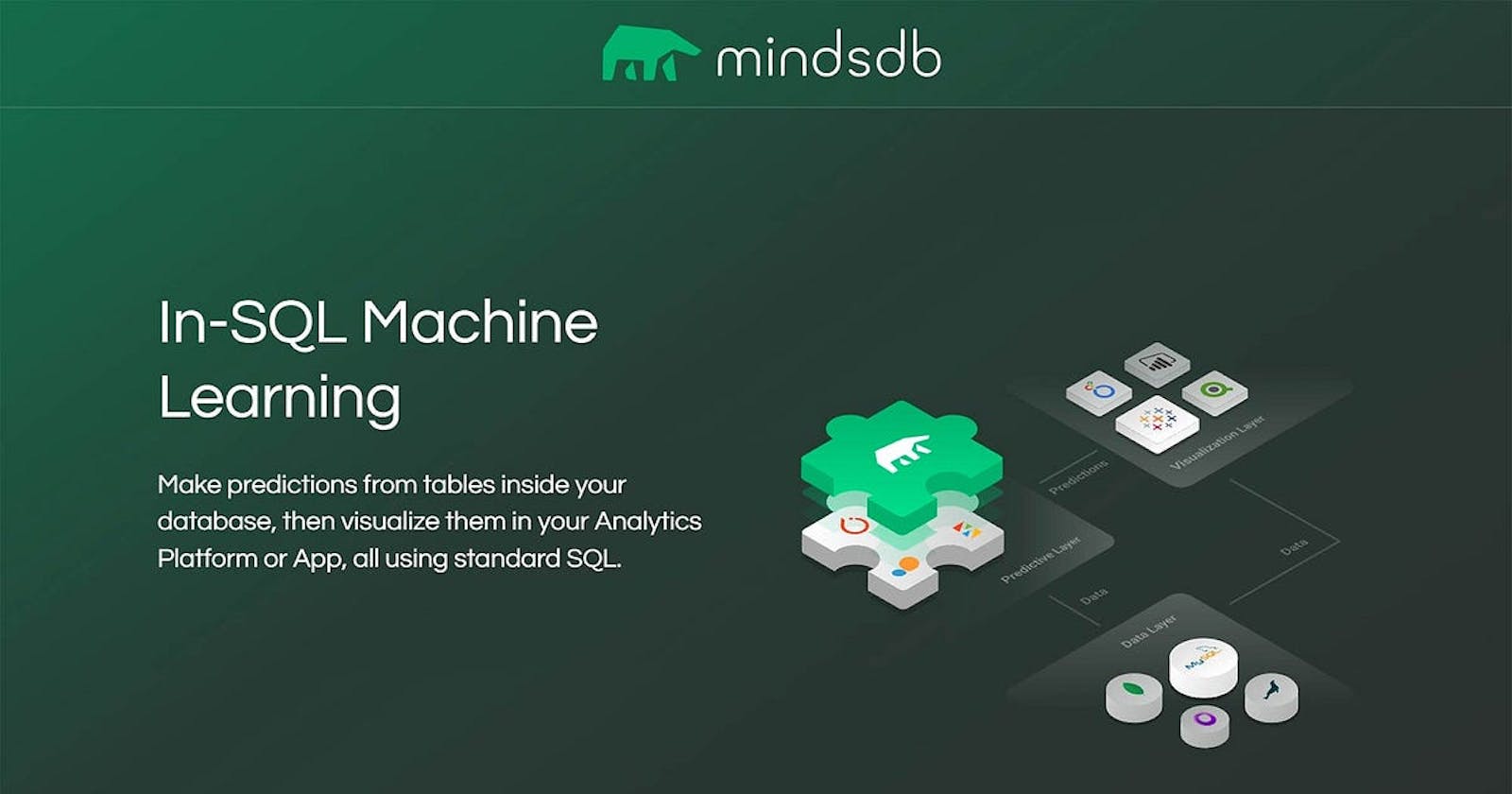Table of contents
This blog post is based on the Hackathon organized by Hashnode and MindsDB. In this blog, I will be sharing my experience contributing to MindsDB in implementing Slack Integration
About MindsDB
MindsDB is the fastest-growing open-source infrastructure company that provides an easy and fast way for developers to integrate machine learning into their applications. With MindsDB, developers can seamlessly connect any data source with any AI framework all in one place. It has over 70 integrations that work seamlessly, with any tech stack.
You can start using their platform for free here. You can instantly start making predictions using Regression, Time Series Data, and Text Analysis using Popular LLMs like OpenAI's ChatGPT don't worry if you don't have any data yet, go through the Learning Hub, it is very helpful to see how things work at a micro-level. It's like a Database for the future 🚀.
Slack Integration
In the hackathon, you can either build any open-source application with the database as MindsDB or you can build any new integration, solve any issue and create a Pull Request for the issue.
I decided to ahead with building a new integration with Slack using Slack API to connect to MindsDB. The goal was to use Slack API which will provide seamless integration with Slack Workspaces from where the user can send messages, post announcements and ultimately use the existing OpenAI or Hugging Face Integration to reply to any queries in the channel something like Snoopstein which is a Twitter account which is connected via MindsDB to reply like a Scientist Albert Einstein and a Famous Rapper like Snoop Dogg.
I started by going through other similar Integrations like Twitter, Snowflake, and ScyllaDB, then I understood the basic structure in which the handlers are assigned. I began by understanding the codebase of the project and how other handlers are working.
There is a slack_handler which implements the core methods from the class APIHandler like
___init__(): Used for initiating the handler and checking the args._register_table(): Registers the data resource in memory.connect(): Performs the necessary steps to connect/authenticate.check_connection(): Evaluates whether the connection is alive and healthy.native_query(): Parses for any native statement string.call_application_api(): Call the application API and maps the data.
After going through these, I went ahead and started to implement these, step-by-step I learned through many mistakes about Python's Object-Oriented Programming, Debugging, CLI commands, and more importantly about version controlling because I did not have much experience contributing towards such a big project where the project moves so fast.
Implementation
After spending days on just one bug, I was moving forward, day by day. Where I learned about methods(), packages, SQL, JSON.
Finally, I completed one Class Implementation which was 50% of the work. Then I moved to implement SlackChannelsTable. Where there were a few more methods to be implemented like:
select(): Call the Slack API to retrieve the conversation history.insert(): To post new messages using SQL queries.update(): To Update the messages previously sent.delete(): To delete any message from the channel.
The select() was the most difficult to implement as the data being retrieved was not in the proper format which the return type of the method was expecting. This took so much time and I learned to debug.
Finally, I was also able to complete these methods in time and added a few extra features for querying like WHERE, ORDER BY, and LIMIT clause.
You can have a look at my code here: GitHub
Here is the video link to my implementation: Video Link
Conclusion
I enjoyed participating in this Hackathon and getting to contribute to MindsDB. I learned a lot throughout the development of this feature, making my fundamentals stronger in Python, SQL, APIs, Git, and CLI commands.
Thank you for reading this blog till here ❤️.

